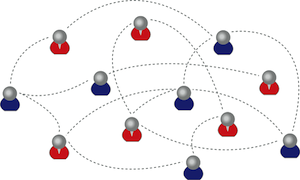
The two companies were already worked together, with Bing providing search results in Facebook and using public Facebook data to create a “social” area within Bing. Today’s announcement goes further by personalizing results in regular Bing searches.
[aditude-amp id="flyingcarpet" targeting='{"env":"staging","page_type":"article","post_id":219920,"post_type":"story","post_chan":"none","tags":null,"ai":false,"category":"none","all_categories":"business,media,social,","session":"D"}']Microsoft and Facebook team members said there are a number of ways that Bing can use Facebook data to personalize your results, with two initial features going live over the next few days. First, Bing will be able to highlight search results that have been “liked” by your friends. For example, if you search for a steakhouse in San Francisco, you’ll get the regular Bing results, but if your Facebook friends have said they “like” a specific steakhouse in San Francisco, that will show up as well. Bing will even tell you which friends recommended the restaurant. Bing can also use Facebook data to improve the results when you search for a name, so that a Facebook friend is more likely to turn up in the results than a random person with the same name.
AI Weekly
The must-read newsletter for AI and Big Data industry written by Khari Johnson, Kyle Wiggers, and Seth Colaner.
Included with VentureBeat Insider and VentureBeat VIP memberships.
Still, at the Microsoft press conference, TechCrunch’s Jason Kincaid wondered if this might just feel creepy. For example, it could be uncomfortable if you’re searching for a disease and you suddenly see that your friend has recommended an article about that disease.
“I don’t think that would be creepy at all,” said Facebook chief executive Mark Zuckerberg. Again, your friend chose to share that article with the public, and the fact that you searched for that disease won’t be shared with your friends.
As for why Facebook is working with Microsoft and not Google on this kind of integration, Zuckerberg said it’s because Bing is in a better position to innovate.
You can read more details on the Bing and Facebook blogs.
VentureBeat's mission is to be a digital town square for technical decision-makers to gain knowledge about transformative enterprise technology and transact. Learn More
